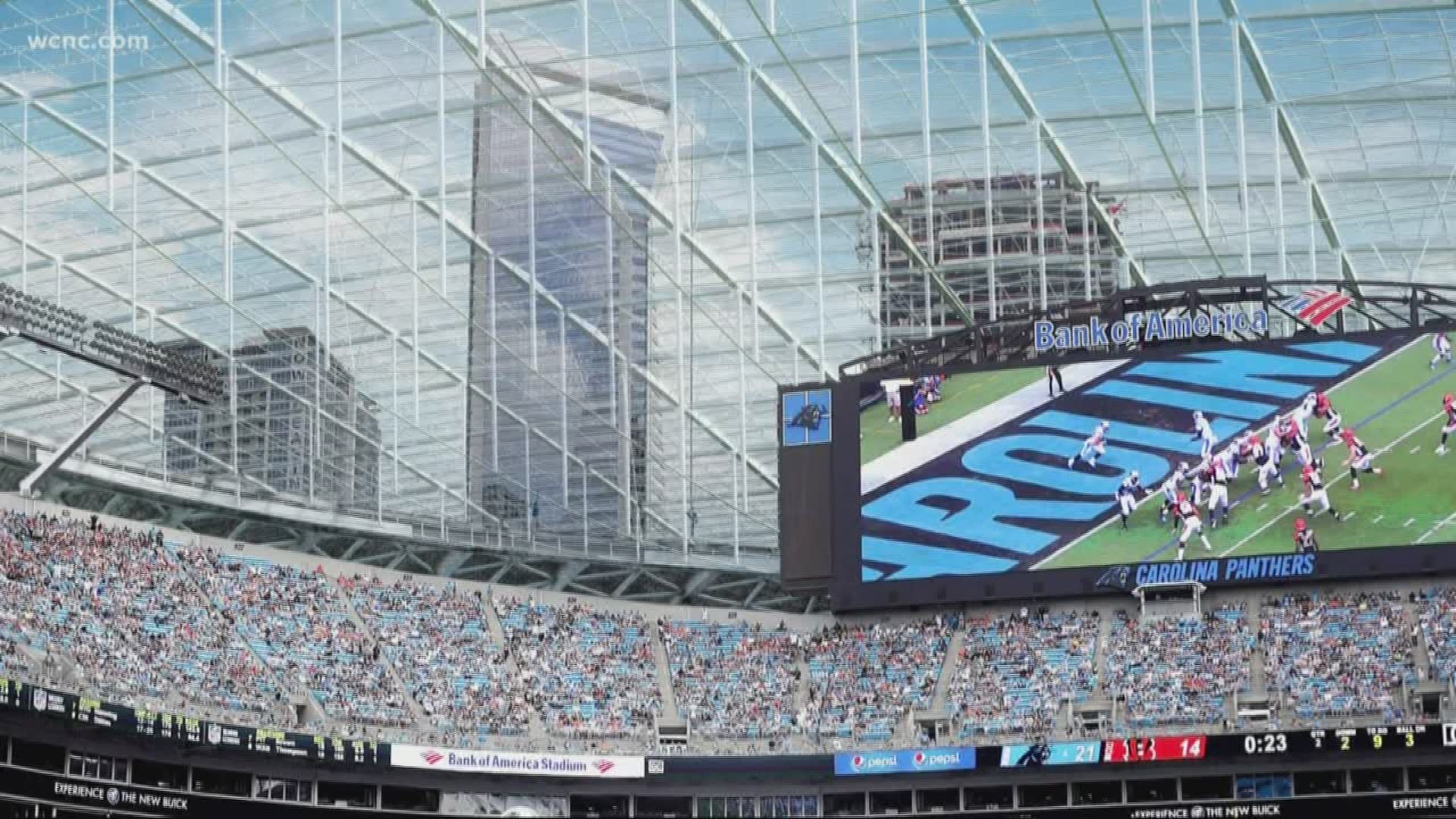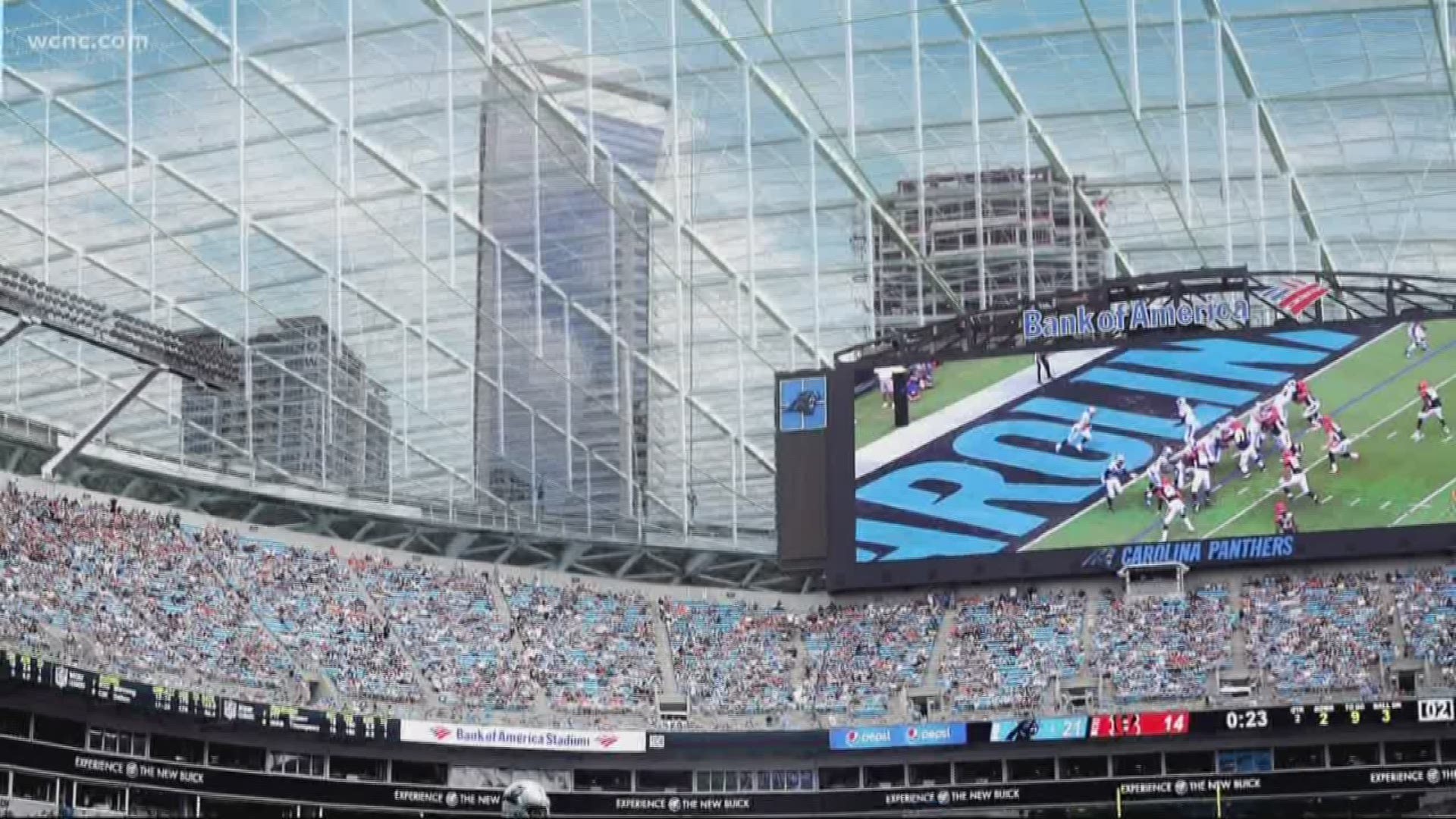CHARLOTTE, N.C. — Team owner David Tepper has mentioned many times that he wants a new stadium for the Carolina Panthers.
WCNC Charlotte found out that Tepper isn't just talking about it — but actively meeting with stadium architects.
“We know David," said Bryan Trubey of HKS Architects in Dallas. "We know him well. He’s been in our office here.”
Trubey and HKS are leading designers of NFL stadiums whose projects include the home of the Dallas Cowboys, and the $5 billion Rams stadium in Los Angeles which opens in June.
“We’ve created the highest-value buildings in the NFL period," said Trubey.
Trubey says about a year ago, Carolina owner David Tepper and Chief Operating Officer Mark Hart were in his office – where he showed them what the Panthers could have if they gave HKS the project.
Renderings including a translucent roof – similar to the one HKS built for the Minnesota Vikings.
"We’ve walked him through a number of things we’ve been involved with," said Trubey, who expects the relationship with Tepper and the Panthers to continue.
Despite Bank of America Stadium being one of the oldest in the NFL, Trubey says recent renovations have made it feasible to renovate it and add a roof.
Tepper may opt for a brand new building, and has even mentioned the nearby 55-acre Pipe & Foundry site as an option.
But one thing is clear – an Uptown location is the most beneficial.
“Making that a more powerful connection is something that adds huge value to these properties,” said Trubey.
But there will be a price for that value. The last seven NFL stadiums cost an average of nearly $2 billion. Tepper, who already requested and received $110 million from Charlotte for MLS-related upgrades, has made it clear he’s not going to foot the entire bill.
“These things are not just me," Tepper said recently at a charity event. "People here have to agree to do things or want to do things.”
Tepper will likely ask for public funding – the question is how much.
The last 10 NFL stadiums were on average about 34 percent publicly financed, with an average of 66 percent private financing.
But owners like Tepper will tell you of the large economic impact a new stadium – especially one that could attract Super Bowls and Final Fours could bring.
“Forget about it," said Tepper. "Knock their socks off economically.”
But sports economists like UNC Charlotte's Dr. Craig Depken say that the benefit doesn't always coincide with the cost.
“We have 30-40 years of evidence that that doesn’t really happen," said Depken, who works at the Belk College of Business.
He says the public benefits of a stadium do exist – especially when they’re used for more than just football. Tepper has a track record of bringing in other teams (MLS) and major concerts.
“Economists take a bit of a different way of measuring those benefits," said Depken. "We find them, but they’re typically much smaller because we only look at the net effects."
One popular study shows a majority of sports economists agree local governments should *not* help fund professional sports stadiums.
But Depken says it all depends on how much Tepper is asking for.
Los Angeles’ new stadium is nearly 100 percent privately financed, while the Colts and Cardinals stadiums were well over 50 percent publicly subsidized, which economists like Depken say is a bad deal.
"You just have to be prudent in what you’re asking for," Depken said, "instead of going all in, right?”


